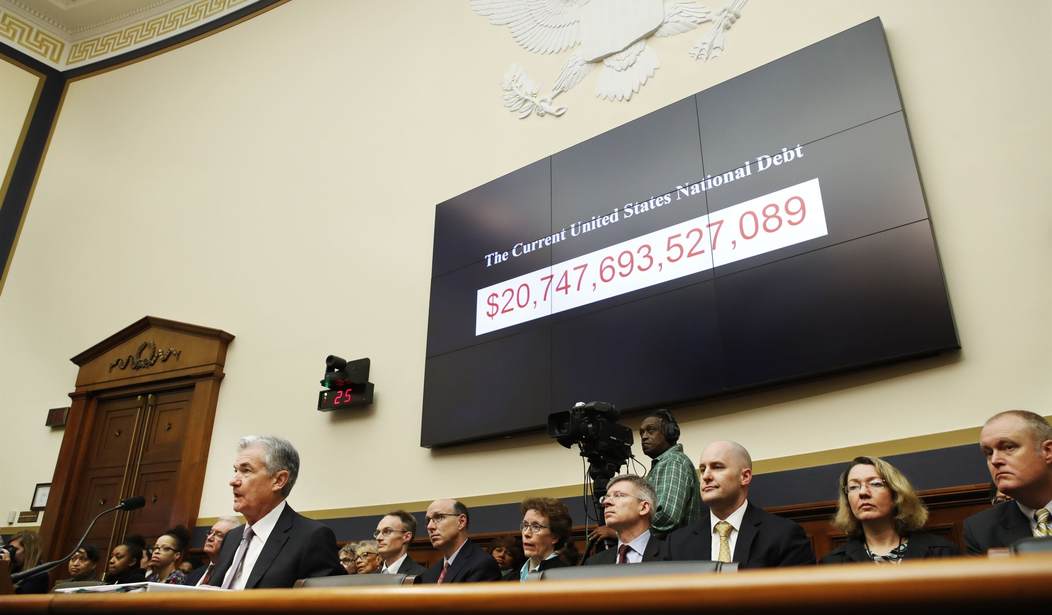Writing an article about the national debt is ridiculous. Nobody will read it, fewer will understand it. And those who do will have a knee-jerk reaction to it. It matters or it doesn’t matter.
The Paul Krugman school of “guilt-free spending” envisions the devil on politicians’ shoulders whispering in their ears to “spend, spend, spend.” The angel on the other shoulder that’s supposed to whisper “no, no. no” has fallen asleep. There are few constraints on spending and any old fuddy-duddies who make a stink about multi-trillion-dollar bills are dismissed as cranks or party poopers.
For going on 40 years, doomsaying fiscal hawks have warned that piling up the national debt will lead to runaway inflation — Venezuela on steroids. But so far, the warnings have not become reality. And after running up a national debt that exceeds the gross domestic product for the first time since World War II, and routinely running trillion-dollar government deficits, all the doom and gloom predicted for overspending has failed to come to pass.
But John Cochrane, an economist at Stanford University’s Hoover Institution, makes the point that the debt doves must be right 100 percent of the time while the hawks fear being right only once.
As a fiscal hawk, Cochrane acknowledges that his doomsaying has been wrong for the past decade, but he says that doesn’t mean he’s wrong now.
“I live in California. We live on earthquake faults.” Cochrane says. “We haven’t had a major earthquake, a magnitude nine, for about a hundred years.” It would be foolish to consider someone a doomsayer for preparing for an earthquake in California, he says, despite the fact that major earthquakes aren’t a common occurrence.
“That’s the nature of the danger that faces us. It’s not a slow predictable thing,” says Cochrane. “It is the danger of a crisis breaking out. So I’m happy to be wrong for a while, but that doesn’t mean that the earthquake fault is not under us and growing bigger as we speak.”
Can the government really keep spending money without there being a threat of any consequences?
The libertarian economist Murray Rothbard once wrote that when economists started telling politicians that it was the “government’s moral and scientific duty to spend, spend, and spend,” they went from being the “grouches at the picnic” to in-house yes-men.
[Jason Furman, who chaired the Council of Economic Advisers under President Obama] says that unlike advocates of Modern Monetary Theory, which posits that near-unlimited government money creation and spending are possible without dire consequences, he recognizes that there are limits. But he believes we are using the wrong metric to gauge the magnitude of the problem.
Indeed, Furman believes that rather than actual numbers — $22 trillion in debt climbing to 202 percent of GDP by 2050 — we should be looking at “stabilizing” the debt.
“The question is where do you want to stabilize the debt,” says Furman. “People used to think it should be 30 percent of GDP. Is that what we need to do in order to be safe? I think if you’re asking that question without looking at interest rates, then you’re in danger of a very incomplete answer.”
“Most people acknowledge that there are limits but they envision slow, steady warnings. That you’ll see the problem coming and you’ll have plenty of time to fix things,” says Cochrane. “And I looked through history and I noticed that when things go wrong, they go wrong in a big crisis.”
What kind of “crisis”? We had a credit meltdown in 2007-2008 that nearly crashed the entire world economy. Now we’re dealing with the pandemic recession that is also worldwide and may be the tipping point for some countries. Just what would it take to set off a round of hyperinflation in the U.S.?
It should make us all uneasy that our current fiscal situation is totally dependent on much of the world staying relatively stable. History shows us that’s folly. With the entire planet connected, we’re even more vulnerable to disruptions than in the past.
For now, wishful thinking rules in Washington.










Join the conversation as a VIP Member